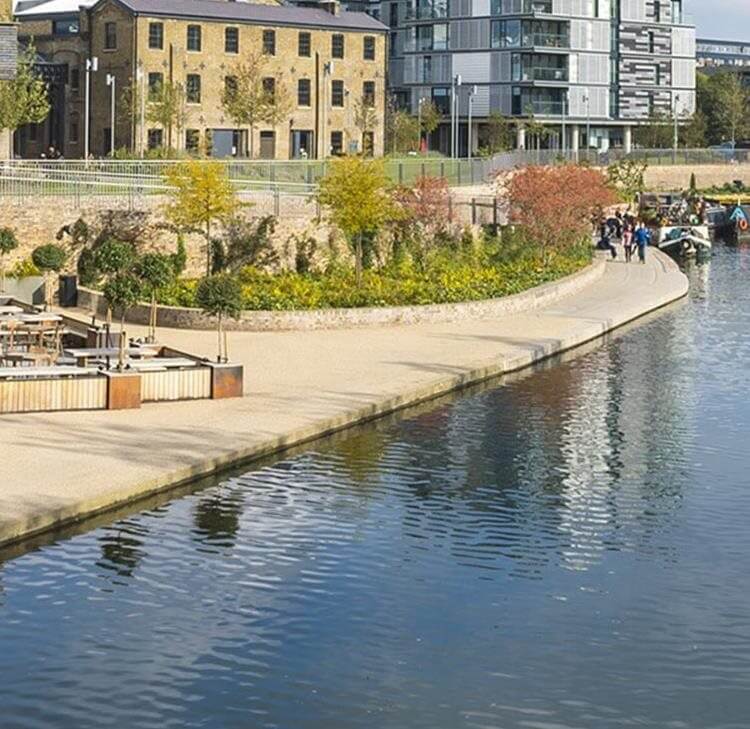With the combined challenges of pollution, flooding and environmental degradation at the forefront of public awareness, there is a growing expectation that organisations will mitigate contamination of our canals and rivers.
The recent decision in Manchester Ship Canal Co Ltd v United Utilities Water Ltd [2024] serves as a reminder of these responsibilities and the increasing potential for mass claims arising from pollution.
Manchester Ship Canal Co Ltd v United Utilities Water Ltd [2024] UKSC 22
The Manchester Ship Canal (the Canal) owners appealed against the decision that they were barred from bringing an action in nuisance or trespass against United Utilities for the discharge of foul water into the Canal, in the absence of negligence or deliberate misconduct, under the Water Industry Act 1991 (the Act).
United Utilities’ sewerage system was designed to discharge foul water into the Canal through outfalls when the hydraulic capacity of the system was exceeded, such as during heavy rainfall. The case explored whether United Utilities could discharge foul water into the Canal in the absence of permission and without a licence, or whether payment should be made to the Canal owners for a licence to discharge.
The Supreme Court allowed the appeal, holding that the Act did not provide statutory authority to trespass or cause a nuisance by discharging untreated sewage into watercourses. It also emphasised that the Act did not exclude common law actions and remedies for those impacted by discharges, unless the polluter was acting within statutory powers or had statutory immunity. Moreover, the Act provided remedies for damages resulting from authorised acts – the interpretation by lower courts, precluding common law actions for unauthorised discharges without providing statutory compensation, was considered perverse.
The court distinguished the case from the decision in Marcic v Thames Water Utilities Ltd [2003] UKHL 66, which concerned Thames Water’s liability for continuing a nuisance by failing to construct a new sewer, following overloaded sewers flooding the Claimant’s property. The Marcic claim failed on the grounds that the Claimant had no independent common law cause of action, with the statutory duty being the essential ingredient. This could be distinguished from the Manchester Ship Canal case, where there was an independent common law action. It was considered that Marcic had been misinterpreted by lower courts to suggest that common law remedies were unavailable in any case where sewage infrastructure inadequacies caused a nuisance. The court found that if the discharge by United Utilities constituted a trespass or created a nuisance – stemming from the system design leading to deliberate discharge - there was a liability as they had caused/adopted this.
The Canal owners were, therefore, entitled to bring a nuisance or trespass claim against United Utilities for the unauthorised discharges, even in the absence of negligence or deliberate misconduct.
What does this mean for water companies?
Without a common law cause of action, as in Marcic, a claimant is left to seek recourse by raising the issue to the Water Services Regulation Authority, Ofwat, under the Act. In Marcic, the court determined that Parliament’s intention was not to allow every householder in affected properties to bring a claim against the sewerage undertaker for a failure to build sewers. However, the Manchester Ship Canal decision demonstrates that it is not only regulators that can take legal action against utility companies, in respect of unauthorised discharges. The decision could open the floodgates to mass claims by private individuals.
The scale of potential claims is against a backdrop of increasing sewage spillages by water companies, with an average of 1,271 spills per day occurring across England in 2023. The impact of these spillages can be significant and wide-ranging, with claims potentially arising from property damage due to flooding, implications to health in connection with swimming in or drinking polluted waters, and water quality and biodiversity claims linked to pollution.
As it was accepted that the discharges in the Manchester Ship Canal case could have been avoided by United Utilities improving their infrastructure and treatment process, it will be crucial for water companies to commit to maintaining and further improving their systems in order to mitigate the risk of liability and mass claims.
Enhanced powers of water industry regulators on the horizon
Alongside the risk of civil claims against water companies, the Government is also seeking to impose stricter regulations and penalties for pollution incidents. The Water (Special Measures) Bill [HL], introduced in September 2024, makes provisions in relation to the regulation, governance and special administration of water companies, with the intention of holding them and their executives to account. The Bill amends and supplements previous legislation, including the Water Industry Act 1991 and Environment Acts of 1995 and 2021, seeking to impose obligations on sewerage undertakers to:
- prepare and publish a pollution incident reduction plan on how they intend to reduce pollution incidents attributable to sewerage systems. Such plans would include considerations of the frequency of, seriousness of and measures to reduce the incidents.
- report discharges into inland waters, underground strata or the sea, arising from emergency overflows.
- The Bill also imposes a duty on environmental regulators to enforce automatic penalties for drought and pollution control offences and amends sentencing and liability provisions for impeding investigations into water companies. Under the Bill, criminal charges can be brought against persistent lawbreaking water executives.
The Bill reinforces the Government’s commitment to improve the water industry and we can expect to see it come into effect without any significant amendment.
What does the future hold?
The ruling in Manchester Ship Canal Co Ltd v United Utilities Water Ltd is a pivotal moment, bringing into sharp focus the expected role of water companies amidst ongoing environmental efforts and pollution prevention. It reinforces that organisations can be held responsible for pollutive discharges and is a reminder of the limitations of statutory immunity.
This judicial emphasis to compel water companies to ensure that their infrastructure is adequately maintained and designed to prevent environmental harm is very likely to be bolstered by the legislative shift expected when the Water (Special Measures) Bill becomes law. Momentum towards greater accountability for utility companies will continue, with greater opportunity for individuals and organisations to seek redress for pollution-related damage. In the face of ever-more frequent extreme weather and climate change concerns, it is vital that utility companies improve resilience, reduce damage, and, in turn, prevent litigation.
Contact

Lauren Wilkinson
Trainee Solicitor
lauren.wilkinson@brownejacobson.com
+44 (0)330 045 2912
Related expertise
You may be interested in...
Legal Update
Manchester Ship Canal Co Ltd v United Utilities Water Ltd: Opening the floodgates to mass litigation?
Legal Update
PFAS: The issue that won’t go away
Legal Update
Biodiversity Net Gain: A new landscape for restoration clauses
Legal Update
ESG and the path to net zero: Construction industry considerations
Legal Update
Climate change related insurance decisions being made around the world
Legal Update
The Supreme Court considers limitation in environmental nuisance claims
Legal Update
Polluters to face unlimited penalties under new legislation
Legal Update
Top tips on tackling air pollution risk in a changing climate
Legal Update - Public matters newsletter
Public matters - January 2023
Press Release
Browne Jacobson advises Natural England on investigation of ‘first in its kind’ sentenced Devon farmer
Legal Update
Updated Greening Government Commitments 2021 – 2025 published
On-Demand
The UK's green agenda - the outcomes of COP27 and actions since COP26
Legal Update
Government pension's consultation on the reporting of climate change risks
The Department for Levelling Up, Housing and Communities (DLUHC) has published a consultation on proposals to require Local Government Pension Scheme (LGPS) administering authorities (AAs) in England and Wales to assess, manage and report on climate change risks.
Legal Update
Climate change litigation – are you protected?
Legal Update
Significant intervention by Senedd Environmental Committee
A Senedd committee has made a significant intervention in relation to post-Brexit environmental protection arrangements in Wales.
Legal Update
Aarhus legal costs in environmental claims
Opinion
Environmental Protection Act 1990 claims - the next big thing for claimant solicitors?
Over the last few years, our local authority and housing association clients have reported a significant increase in the number of claims received, usually from one of a specific group of claimant solicitors acting on behalf of tenants alleging a breach of their landlord’s repairing obligations.













